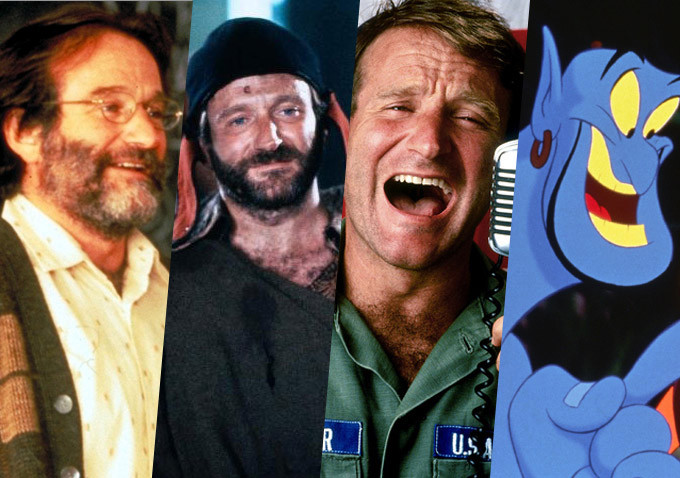 “Awakenings” (1990)
“Awakenings” (1990)
Before 1990’s ‘Awakenings,’ Williams’ more dramatic roles had often had ostensibly comic underpinnings, harnessing his manic energy and improvisational skills. ‘Awakenings’ was something different, though. It’s not that there isn’t humor in Penny Marshall‘s fictionalized retelling of Oliver Sacks‘ memoir: there is, though the film is inherently a dramatic one. It’s that surprisingly little of it comes from Williams, who plays Dr. Malcolm Sayer, a painfully shy, dedicated surrogate for the real-life Sacks, who makes a major breakthrough with patients who’ve been catatonic for decades, most notably Leonard Lowe. The latter’s played by Robert De Niro, who had the showier part (for which he was Oscar-nominated), but Williams is just as impressive; his trademark motormouth is nowhere to be found, and there’s no desire to please in his portrayal. It’s subtly technical work, Williams virtually receding into himself when he has to interact with people, just as locked-in as the patients he treats, afraid of even touching others. But through his palpable joy at the work he does, and the life-embracing example set by Leonard, he gradually opens up enough to ask nurse Julie Kavner for coffee (an admirably un-Hollywood romance, closer to “Marty” than a more standard romantic sub-plot). Performances aside, it’s not a great film: too neat, too saccharine, flatly directed. But it’s a key one in Williams’ career: the point where he realized he could be just as effective by ceding the limelight as he could be storming it.
![Birdcage, The (1996) | Pers: Nathan Lane, Robin Williams | Dir: Mike Nichols | Ref: BIR022AB | Photo Credit: [ United Artists / The Kobal Collection / Sebastian, Lorey ] | Editorial use only related to cinema, television and personalities. Not for cover use, advertising or fictional works without specific prior agreement](https://theplaylist.net/wp-content/uploads/2016/08/the-birdcage-robin-Williams.jpg) “The Birdcage” (1996)
“The Birdcage” (1996)
The tributes and reminiscences that have flooded the airwaves and the internet since word of Williams’ death spread all tend to mention one thing: his kindness. It’s a generosity of spirit that those who knew him felt personally, but those of us not so lucky can see it in many of his performances, like this one in Mike Nichols’ daffy, silly, fond-despite-its-stereotypes ‘The Birdcage.’ In a film not exactly noted for its subtlety (Elaine May’s script was based on a 1978 Franco-Italian film, and while contemporized, certainly feels pinpoint-dated to its mid-nineties period now) Williams, who could be as outrageous and OTT as any actor working back then, underplays gently and graciously cedes the more outre gags and moments to the rest of the cast. He has to negotiate the “straight man” (irony of phrase not lost on us) role as the loving gay father, in a committed long-term relationship with the star of the drag show he produces (Nathan Lane), whose son announces that he wants to marry the daughter of an arch-conservative (Gene Hackman). Mostly holding down some surprisingly tender middle ground between Lane’s flamboyant drama queen carrying-on and Hackman and Dianne Wiest’s hilariously uptight vehement Tea Partiers, Williams nonetheless has moments where he manages to mine laughs seemingly from nothing (a scene finding him dropping an ice bucket immediately after exclaiming “How ’bout those Dolphins, eh?” has no right to be as funny as it is). As contrived as “The Birdcage” now might seem, and as rushed and pat its denouement, Williams’ performance, a deceptively difficult one, remains note-perfect. “Dead Poets Society” (1989)
“Dead Poets Society” (1989)
There were inspirational teacher movies before ‘Dead Poets Society,’ and there have been many since, but few have ever felt as authentic as this Peter Weir film. The Oscar-winning script by Tom Schulman did a remarkable job of capturing that moment in adolescence when artistic dreams and the pragmatic necessities of education and life seem like irreconcilable impulses. For the students at Welton Academy in the ‘50s, their lives already seemingly mapped out for them, new English teacher John Keating opens the door to philosophies and possibilities they’d never considered or hadn’t had the courage to explore. In one of Williams’ most heartwarming turns (he was Oscar-nominated for the performance) he was the teacher and parent we all wish we had, someone who openly defied convention, and embraced and encouraged the importance of the individual spirit. There is nothing particularly new about this message, and the movie itself doesn’t shake up its genre constraints, but Williams is the film’s soul, its energetic spirit and artistic conduit. “We don’t read and write poetry because it’s cute. We read and write poetry because we are members of the human race. And the human race is filled with passion. And medicine, law, business, engineering, these are noble pursuits and necessary to sustain life. But poetry, beauty, romance, love, these are what we stay alive for,” John Keating says. We can only wish that Robin Williams had found enough of that poetry, that he shared so generously with audiences, in his own life.





